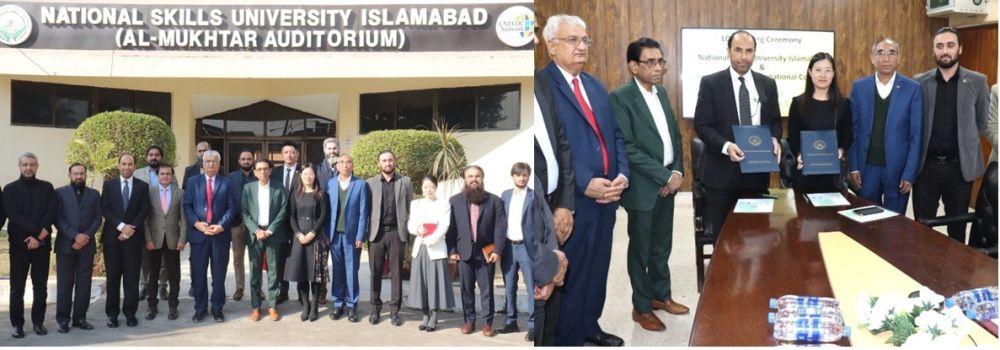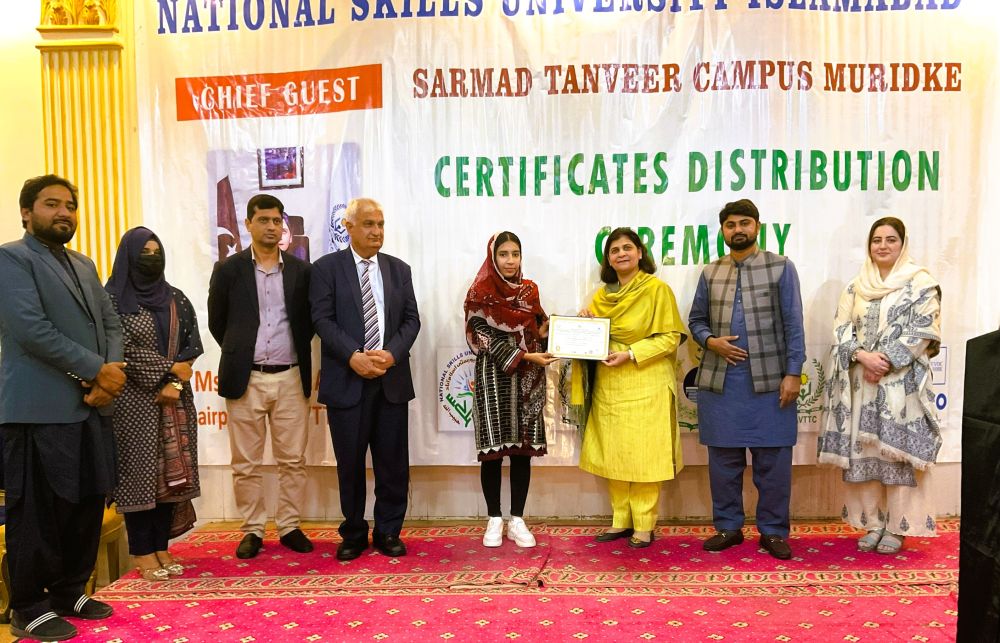137/25 Transforming Pakistani Academia: NAHE’s Bold Mission to Upskill Higher Education
Posted 7 months ago
With vision and vigor, the National Academy of Higher Education (NAHE) is rewriting the narrative of academic excellence, faculty development, and leadership training in Pakistan.
Founded under the umbrella of the Higher Education Commission (HEC) of Pakistan, the National Academy of Higher Education (NAHE) is fast emerging as a cornerstone of academic innovation, institutional capacity-building, and professional empowerment within the country’s higher education sector.
As Pakistan confronts the dual challenges of youth employment and aligning with the knowledge economy, NAHE is spearheading a national shift—from outdated pedagogies to global standards of learning, leadership, and research. For academics, administrators, and policymakers alike, the academy has become a symbol of reform-driven resilience.
The Genesis of NAHE: A Timely Intervention
The establishment of NAHE marked a deliberate response to a longstanding void in faculty preparation and higher education leadership development. Pakistan’s universities, both public and private, have long suffered from a systemic lack of formal pedagogical training, strategic leadership development, and structured mentorship for early-career academics.
NAHE filled this critical gap with a mandate to professionalize the higher education workforce, enabling faculty and academic leaders to meet the standards of 21st-century education. Its establishment signaled a national recognition that degrees alone do not make teachers—and that effective teaching, learning, and academic governance require dedicated investment.
Faculty Training: From Conventional to Contemporary
One of NAHE’s flagship programs, the Pre-Service National Faculty Development Program (NFDP), has set new benchmarks in preparing fresh PhD graduates for academic careers. The program is more than a checklist of modules; it’s a journey that exposes young faculty to the challenges of classroom engagement, curriculum design, learning outcomes, digital tools, and the ethics of academia.
Delivered across Pakistan, the NFDP has already trained thousands of PhD holders, transforming their academic orientation from purely research-centric to teaching-ready and student-focused.
Through blended learning models, NAHE has ensured accessibility across provinces, empowering faculty from Balochistan to Gilgit-Baltistan with equal development opportunities. In doing so, it is closing the skill and equity gaps that have historically defined Pakistan’s higher education ecosystem.
Leadership and Governance: Building Academic CEOs
The academy’s vision extends far beyond faculty training. Through its Leadership Training Programs, NAHE is developing the next generation of academic leaders, deans, registrars, and vice-chancellors —individuals capable of steering universities with vision, integrity, and strategic foresight.
In a sector where administrative roles often default to seniority rather than capability, NAHE is helping institutionalize merit-based leadership pipelines. By focusing on governance, policy literacy, financial management, quality assurance, and crisis response, the academy is redefining what it means to be an academic leader in Pakistan.
NAHE’s Digital Leap: A Model of Accessibility and Innovation
NAHE’s success also lies in its embrace of technology. From virtual classrooms and MOOCs to LMS-based assessments and digital repositories, the academy has ensured that its programs are not only inclusive but also scalable and future-ready.
This digital-first approach proved particularly critical during the COVID-19 pandemic, when the academy swiftly migrated to online faculty development, ensuring continuity of learning at a time when the education sector worldwide was in crisis.
Moreover, NAHE has actively partnered with international academic institutions and donor agencies, embedding global best practices into the local context—without sacrificing national priorities or cultural coherence.
Research and Impact: Data-Driven Policy Contributions
NAHE doesn’t just train; it listens, observes, and evolves. Through continuous impact evaluation, feedback loops, and academic research, the academy informs national education policy with grounded data and practical insight.
Its regular engagement with universities, faculty, and education managers makes it a think-and-do tank—contributing to policy dialogues on accreditation, employability, curriculum reform, and research commercialization. By sitting at the intersection of knowledge and implementation, NAHE ensures that policy is not only aspirational but also actionable.
The Road Ahead: Challenges and Commitment
As Pakistan seeks to harness the power of its youthful population, the role of higher education becomes increasingly pivotal. In this national project, NAHE stands as a silent architect, reshaping how academia functions, how teachers teach, and how leaders lead.
Last but not least, it is essential to mention the contributions of Dr. Noor Amna Malik, her entire team, and Dr. Mukhtar Ahmad, who have been instrumental in shaping the vision and execution of NAHE’s mission. As an experienced educator, Dr. Noor Amna Malik brought academic depth, strategic foresight, and a strong commitment to faculty development during her leadership at NAHE, laying the foundation for its programs and quality benchmarks. Meanwhile, Dr. Mukhtar Ahmad, as Chairman of the Higher Education Commission (HEC), provided continued support and policy direction, enabling NAHE to align its initiatives with national priorities. Together, their leadership catalyzed NAHE’s emergence as a transformative force in Pakistan’s higher education landscape.





